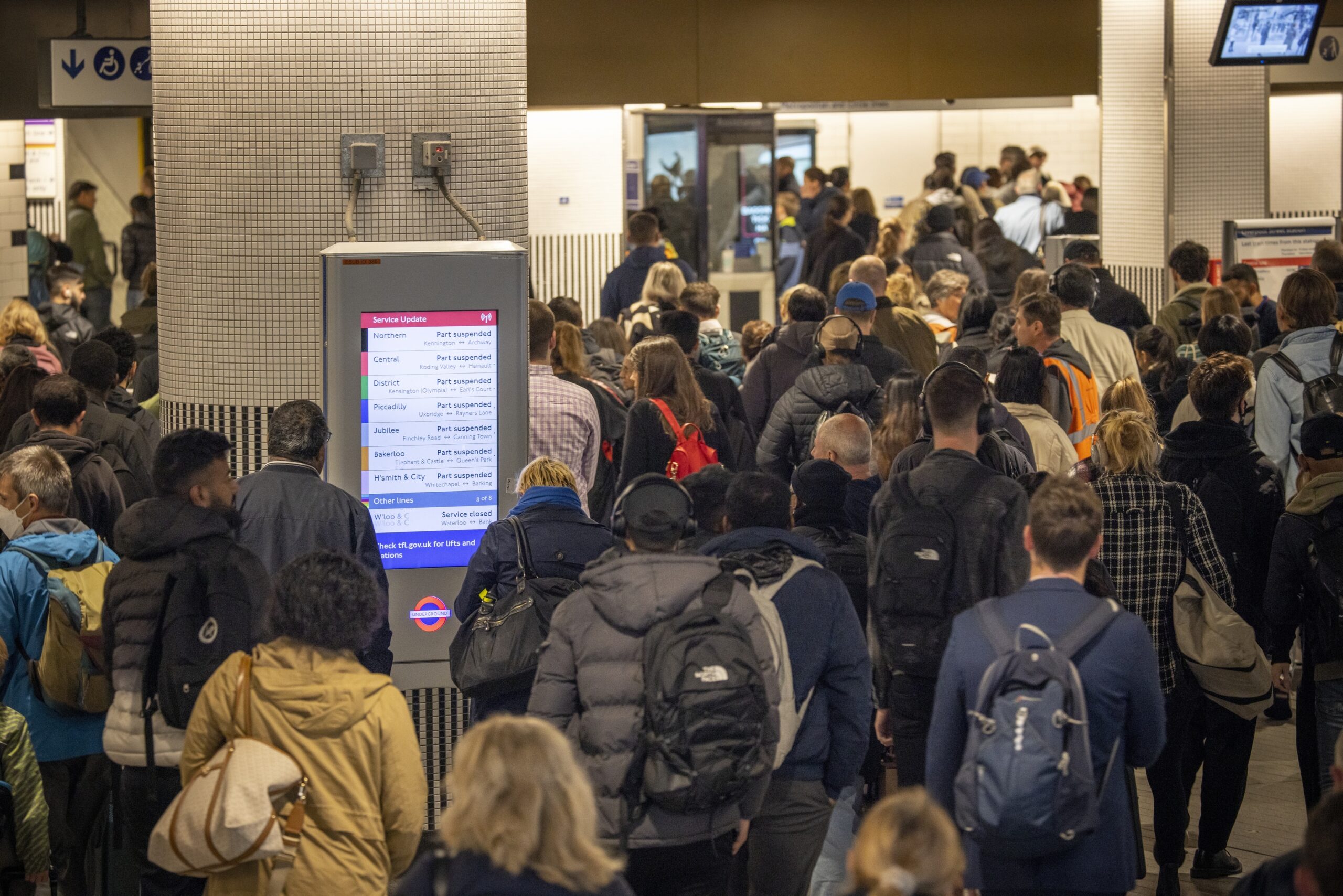The main British transport union, RMT, threatens to “close down the rail system” in the country during three days of strikes, scheduled for June 21, 23 and 25, demanding wage increases and job security. The first day of the industrial action will also extend to the London Underground in a fight against the head of the Government, Boris Johnson, who faces a rampant cost of living crisis between projections of economic stagnation in 2023.
RMT is preparing the biggest industrial strike for four decades in its confrontation with the industry and the Conservative government to ensure wage improvements in line with inflation and eliminate the shadow of forced layoffs. The action has the massive support of its affiliates – some 40,000 on the railways and 10,000 on the London Underground – who work in Network Rail, the public entity that manages the lines and train stations, and in 13 of the 15 private operators of the passenger and cargo services. The disruptions will last beyond the announced three days of strike in a week that coincides with the Glastonbury festival and several popular sporting events
In the United Kingdom there is no obligation to provide a minimum rail service, although contingency plans are already being prepared to mitigate the impact of the strike. The Government has ordered to prioritize the transport of goods -crude oil, food and construction, according to the order of importance- to avoid a lack of fuel at gas stations or that supermarket shelves empty again.
The industrial action collides with Johnson’s objective of increasing freight transport by train – currently below 20% – to alleviate the shortage of drivers of heavy vehicles and reach the goal of reducing polluting gases. And the disgraced prime minister is determined not to lose the battle against the unions, analysts agree. They compare the situation to Margaret Thatcher’s brutal annihilation of the 1984 national miners’ strike. “It is disappointing that they have called this strike. They run the risk of scaring away travelers, of being counterproductive,” Johnson’s spokesman criticized in a meeting with foreign media.
Rail transport has recovered around 75% of users prior to the pandemic, and the Government has guaranteed an injection of 7.6 million pounds (about 9 million euros) in system modernization programs. RMT relates that aid to unnecessary cuts in Network Rail’s workforce, which was the trigger for its members’ query.
It is not the only union that wields the saber of unemployment in the campaign to negotiate labor improvements. Two transport centrals -TSSA, of section chiefs and supervisors, and Aslef, of drivers- have already initiated the legal procedures to consult their members. “Our demands are simple: no forced redundancies, wage increases that reflect inflation, no forced changes in working conditions,” said the general secretary of TSSA, the Gibraltarian Manuel Cortes, after warning that the British face a “summer of discontent”. The plague of strikes threatens to jump from rail and underground transport to the postal companies, British Airways and BT, among others.
Johnson has just saved a motion of no confidence, which led 41% of the conservative parliamentary group to vote against him. He questions his personality, his integrity and the inconsistency of his government program and the recipes to deal with the consequences of Brexit, the coronavirus pandemic and the war in Ukraine. Inflation rose to 9% in April and the Bank of England anticipates further increases before approaching the official target of 2% in “about two years”. Meanwhile, taxes, the shopping basket and gas and electricity bills rise. And, according to data confirmed this Thursday, filling the typical family car with gasoline costs above 100 euros for the first time. In turn, the OECD projects economic stagnation in 2023 in the United Kingdom and the worst performance of the entire G20, excluding Russia.
Conforms to The Trust Project criteria
















